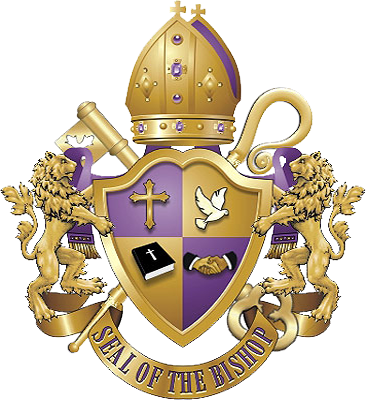The First Bishops of the New Testament
Church: Their Lives and Contributions
Lesson 4.3: Irenaeus of Lyons: Defender of Orthodoxy
Irenaeus of Lyons stands as one of the most significant figures in early Christian
history, particularly for his role in defending orthodoxy and combating heresies that
threatened the stability of the church. Born around 130 AD in Asia Minor, likely in or
near Smyrna, Irenaeus grew up in a region with strong ties to early Christian leaders.
He was deeply influenced by Polycarp, the Bishop of Smyrna, who had been a disciple
of the Apostle John. This connection placed Irenaeus in direct lineage with the
teachings of the apostles, grounding him in authentic Christian doctrine during a time of
doctrinal uncertainty and division.
Irenaeus eventually relocated to the Roman province of Gaul, modern-day France,
settling in the city of Lyons. By the late second century, Lyons had become an important
center for Christian activity amidst a predominantly pagan society. Irenaeus served the
Christian community there, first as a presbyter and later as its bishop, succeeding the
martyred Bishop Pothinus. His leadership came during a turbulent period marked by
persecution from the Roman authorities and internal theological disputes among
Christians.
One of Irenaeus’ most significant contributions was his work against heresies,
particularly Gnosticism. Gnosticism was a diverse and complex movement that posed a
serious challenge to the early church. It emphasized secret knowledge, claimed that
salvation came through enlightenment rather than faith, and often rejected the material
world as inherently evil. Gnostic teachings distorted the Christian message by denying
the goodness of creation, the humanity of Christ, and the authority of Scripture. These
ideas threatened to undermine the core tenets of the faith.
In response, Irenaeus wrote a monumental work titled "Against Heresies," a
comprehensive critique of Gnostic teachings. This five-volume text not only refuted
Gnostic doctrines but also provided a robust defense of orthodox Christianity. Irenaeus
emphasized the importance of apostolic tradition, arguing that the true teachings of
Jesus were passed down through the apostles and their successors. He asserted that
the bishops, as guardians of this tradition, held the authority to interpret Scripture
correctly. This argument reinforced the unity of the church and helped establish a
framework for theological consistency.
A key aspect of Irenaeus’ theology was his focus on the incarnation of Christ. He
argued that Jesus, as both fully divine and fully human, was central to God’s plan for
salvation. Unlike Gnostic thinkers who rejected the material world, Irenaeus affirmed
the goodness of creation, pointing to the incarnation as evidence of God’s desire to
redeem humanity and restore creation. He explained that through Jesus’ life, death, and
resurrection, humanity was reconciled to God and offered eternal life. This emphasis on
the incarnation became a cornerstone of Christian theology and remains vital to
orthodox belief.
Irenaeus also contributed to the development of the canon of Scripture. While the New
Testament had not yet been formally compiled during his lifetime, Irenaeus recognized
the authority of certain texts and rejected others. For example, he affirmed the four
Gospels—Matthew, Mark, Luke, and John—as authentic and inspired, while dismissing
Gnostic writings as illegitimate. His support for a unified set of authoritative texts helped
shape the eventual formation of the Christian canon.
Another significant contribution was Irenaeus’ articulation of salvation history. He
presented a view of human history as a divinely guided process, culminating in Jesus
Christ as the fulfillment of God’s plan. Irenaeus emphasized the concept of
"recapitulation," which means that Christ reversed the damage caused by Adam’s
disobedience. By living a perfect life and offering himself as a sacrifice, Jesus restored
humanity’s relationship with God. This understanding of salvation history provided a
cohesive narrative that connected the Old and New Testaments, demonstrating the
unity of God’s purpose throughout time.
In addition to his theological work, Irenaeus was deeply committed to fostering unity
within the church. He recognized that division and conflict weakened the Christian
community, leaving it vulnerable to external persecution and internal strife. Irenaeus
encouraged dialogue and reconciliation, seeking to bring believers together under a
shared understanding of the gospel. His efforts to promote unity were particularly
evident in his involvement in disputes surrounding the date of Easter. While different
regions of the church celebrated Easter on different dates, Irenaeus urged mutual
respect and emphasized the importance of maintaining communal harmony despite
these differences.
Irenaeus’ legacy extends far beyond his lifetime. His writings laid the groundwork for
many theological developments in the centuries that followed. His defense of apostolic
tradition influenced the structure and governance of the church, reinforcing the role of
bishops as custodians of Christian doctrine. His emphasis on the incarnation shaped
the church’s understanding of Christology, particularly during later debates about the
nature of Christ. Furthermore, his efforts to combat heresies provided a model for
addressing doctrinal challenges, demonstrating the importance of clarity, unity, and
reliance on Scripture.
In conclusion, Irenaeus of Lyons played a pivotal role in safeguarding the integrity of
Christian theology during a critical period in church history. His life and work exemplify
the qualities of a faithful bishop: a commitment to truth, a passion for unity, and a
dedication to the spiritual well-being of his community. By countering heresies, affirming
apostolic tradition, and defending the incarnation, Irenaeus strengthened the
foundations of the church and ensured the preservation of orthodox faith for future
generations

Comments are closed.